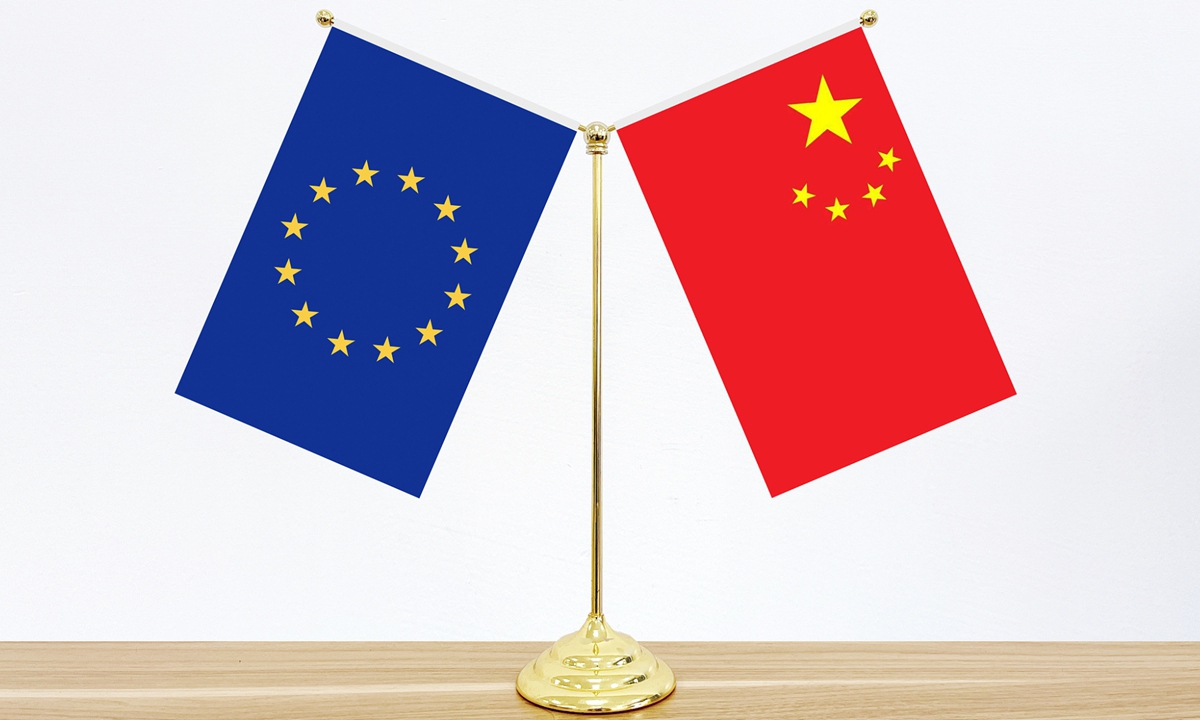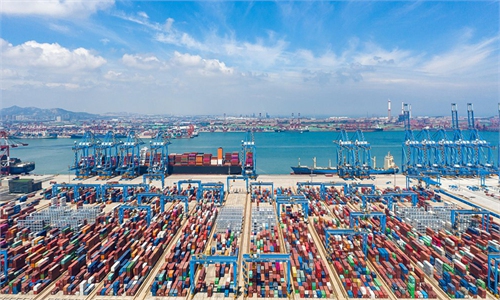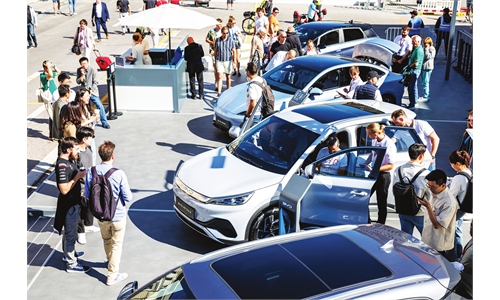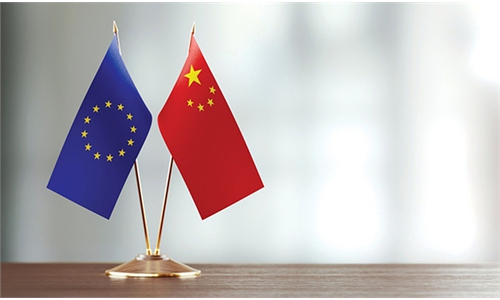
China EU Photo:VCG
European Commission President Ursula von der Leyen has warned that Europe won't tolerate its soaring trade imbalance with China forever, AFP reported on Tuesday."We have seen a growing trade imbalance. The trade imbalance has doubled in the last two years to up to almost 400 billion euros ($430 billion) by now ... European leaders will not tolerate over time an imbalance in the trade relationship," she told an AFP reporter.
"But we prefer to have negotiated solutions. And these are the choices that, for example, now are on the table and where I think it is also in China's interest to look carefully at these choices."
While von der Leyen's remarks may sound like a warning ahead of the 24th China-EU Summit that is set to be held in Beijing on Thursday, EU leaders' inclination and likelihood of discussing concerns over the trade deficit with China is actually a positive sign pointing to an improvement, not drifting apart, in bilateral relations, as it means that the topics discussed in the summit will return to pragmatism.
It is true that compared with the past, China and the EU are facing many more issues, disputes, disruptions and challenges in the economic and trade fields. The main concern of the European side is the widening trade deficit between China and the EU, which is actually posing challenges for both economies. To address the issue effectively, it is crucial for both sides to work together and take concerted actions.
The reasons behind the growing trade deficit between China and the EU are complicated. China mainly exports labor-intensive products, such as textiles, clothing and electronic products, while the EU's exports mainly involve technology-intensive industries, such as automobiles, mechanical equipment and chemical products. Due to geopolitical turmoil, soaring energy costs and other factors, the price competitiveness of European products has been affected to a certain extent in the international market.
Meanwhile, the EU has imposed restrictions on high-tech exports to China. Changes in currency exchange rates these days may also play a role in the trade imbalance. In response to foreign media reports regarding von der Leyen's complaints about the trade imbalance with China, Chinese Foreign Ministry spokesperson Wang Wenbin said on Wednesday that it would be illogical for Europe to impose strict restrictions on the export of high-tech products to China while also hoping to significantly increase exports to China.
This is also why it is blind of the EU to simply attribute the trade deficit to China's "trade barriers" or "subsidies" and adopt a protectionist approach, which is not only unhelpful in solving the problem, but could easily cause more damage to bilateral industry chain cooperation.
It is not just the EU that is unwilling to see the trade deficit grow too huge. China is also very concerned about the trade imbalance, which has triggered some issues, including concerns about the EU's competitiveness, questions and political hype about so-called Chinese industrial subsidies, and uncertainties about potential trade disputes.
China has been trying to create conditions to ease the EU's concerns through importing more EU products. For instance, China booked imports of about 2.5 million metric tons of French wheat since September, for December-March shipment, according to media reports. Also, China's first domestically made large cruise ship, which was formally delivered in November, has more than 25 million parts, of which many were supplied by European suppliers.
These examples fully show that China can increase its purchases of European products if there is a need and circumstances allow. But market opening-up is a two-way issue, so efforts from both sides are required to address factors that hinder openness and smooth trade.
Overall, with the improvement of China-EU relations, the return of bilateral dialogue to pragmatic cooperation is conducive to the development of bilateral economic and trade relations.
It is completely normal for the two sides to have differences. However, as long as they can return to the track of pragmatic cooperation and move toward each other, and avoid their differences becoming politicized into conflicts and confrontations, there will be breakthroughs in a series of issues in bilateral trade relations and past cooperation issues that have been stranded for various reasons, including the China-EU Comprehensive Agreement on Investment.



